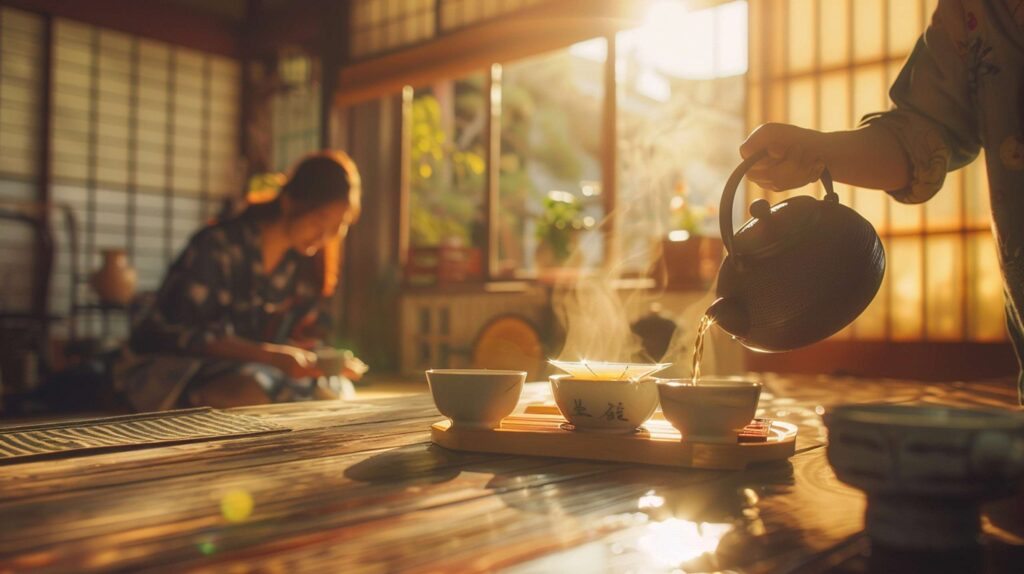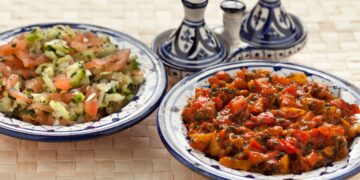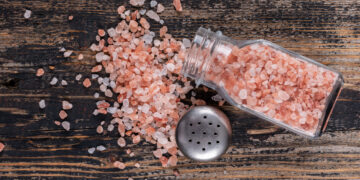Autumn in Morocco is more than a shift in seasons—it is a time of warmth, balance, and tradition. As the weather cools, kitchens and living rooms across the country fill with the comforting aromas of spiced tagines, roasted chestnuts, and herbal teas. Beyond their taste, Moroccan herbal infusions are deeply tied to health and wellness, especially during the transitional months when colds, fatigue, and seasonal discomforts are more common. In Morocco, these teas are not just drinks; they are remedies, rituals, and a way to connect body and spirit to the rhythm of the season.
The Role of Herbal Teas in Moroccan Life
Tea in Morocco is more than a beverage—it is a ritual of hospitality, care, and healing. While green tea with mint is iconic, herbal infusions have always had a strong place in Moroccan homes.
During autumn, when the body is vulnerable to colds, coughs, and digestive issues, herbal teas are served to restore balance. They are enjoyed after meals, offered to guests, or taken as a natural comfort during cooler nights. For many Moroccan families, these brews are the first line of defense against seasonal ailments, blending wellness with tradition.
Verbena Tea (Louiza): Calming and Restorative
Verbena, or louiza, is one of Morocco’s most beloved herbal teas. Its citrusy aroma and gentle flavor make it a household favorite in autumn.
Beyond taste, verbena tea calms the mind, aids digestion, and soothes tension. To prepare it, fresh or dried verbena leaves are steeped in hot water for several minutes, often with a touch of sugar or a slice of lemon. After a heavy meal of couscous or harira, many families brew louiza to restore balance. Its calming properties also help with relaxation, making it a trusted companion for peaceful evenings.
Thyme Tea (Zaâtar): Strengthening for the Body
Thyme tea, or zaâtar, is another autumn staple. Its earthy, fragrant flavor is valued for easing seasonal coughs, supporting breathing, and warming the body.
Traditionally, fresh or dried thyme sprigs are rinsed and steeped in boiling water for 5–10 minutes, sometimes sweetened with honey or flavored with a slice of lemon. This creates a comforting drink that protects against autumn chills. In rural areas, thyme tea is a traditional remedy passed down through generations.
Hiking Trails in the Middle Atlas Mountains
The Middle Atlas Mountains are often overshadowed by the High Atlas or the Rif, yet they hold some of Morocco’s...
From Passion to Profession: Turning Creative Skills into Income
In Morocco, more young people are transforming their creative talents into careers. Whether it’s photography, calligraphy, fashion design, or digital...
Young Moroccans Abroad: Balancing Wanderlust and Roots
For many young Moroccans, the dream of exploring the world is irresistible. Whether through study, work, or travel, living abroad...
Networking for Millennials: How to Build Real Connections in Casablanca and Rabat
In Morocco’s fast-paced urban centers, especially Casablanca and Rabat, networking is essential for millennials seeking growth and opportunities. No longer...
Fenugreek Tea (Helba): Warming and Supportive for Women
Fenugreek tea, known as helba, is especially cherished for women’s wellness. Beyond warming the body in autumn, it supports recovery after childbirth, eases menstrual discomfort, and strengthens vitality during seasonal changes.
To make it, fenugreek seeds are lightly roasted or crushed, then steeped in hot water for several minutes. Some households add a small amount of honey to balance its naturally bitter, nutty flavor. For many Moroccan women, a cup of helba is more than a drink—it is a natural form of care and resilience, lovingly passed down through generations.

Chamomile Tea (Babounj): Comfort for Seasonal Aches
Chamomile, or babounj, is used to soothe aches, ease restlessness, and provide comfort during cooler nights. Parents often prepare it for children to calm upset stomachs or help them sleep peacefully.
Traditionally, dried chamomile flowers are steeped in hot water for several minutes until the infusion becomes golden and fragrant. A touch of honey may be added for sweetness and extra soothing effect. In autumn, when colds and fatigue are more common, chamomile tea is seen as a nurturing remedy that brings softness and calm into the household.
A Testimonial: Autumn Nights with Tea
“For me, autumn doesn’t begin until I brew my first pot of verbena tea,” says Amina, a grandmother from Meknes. “It reminds me of my mother, who always said a cup of herbal tea could heal both the body and the heart. Now, I prepare verbena for my grandchildren, and thyme when they catch a cough. It’s not only about health—it’s about tradition, love, and keeping our Moroccan ways alive.”
Amina’s story reflects how herbal teas carry both wellness and memory, linking generations through simple rituals.
Conclusion
Traditional Moroccan herbal teas are far more than seasonal drinks—they are part of a heritage of wellness, family care, and cultural identity. In autumn, when the body is sensitive to colds, fatigue, and seasonal discomforts, these infusions offer comfort and healing.
From verbena’s calm to thyme’s strength, fenugreek’s warmth for women, and chamomile’s gentle care, Moroccan households have long relied on these remedies. Preparing and sharing them is about health, connection, and tradition. This autumn, a warm cup of herbal tea is more than a cure—it is a celebration of Moroccan wellness.
















Discussion about this post